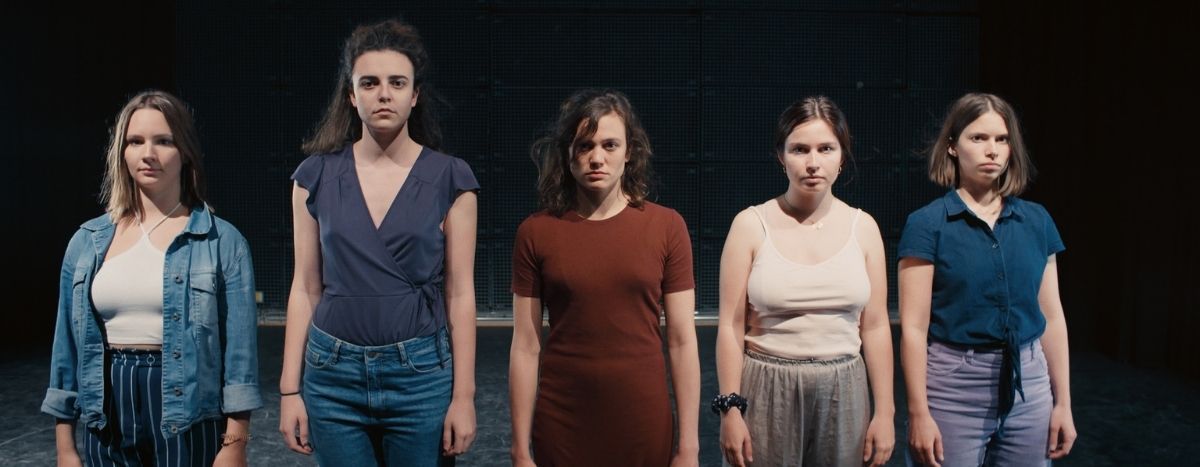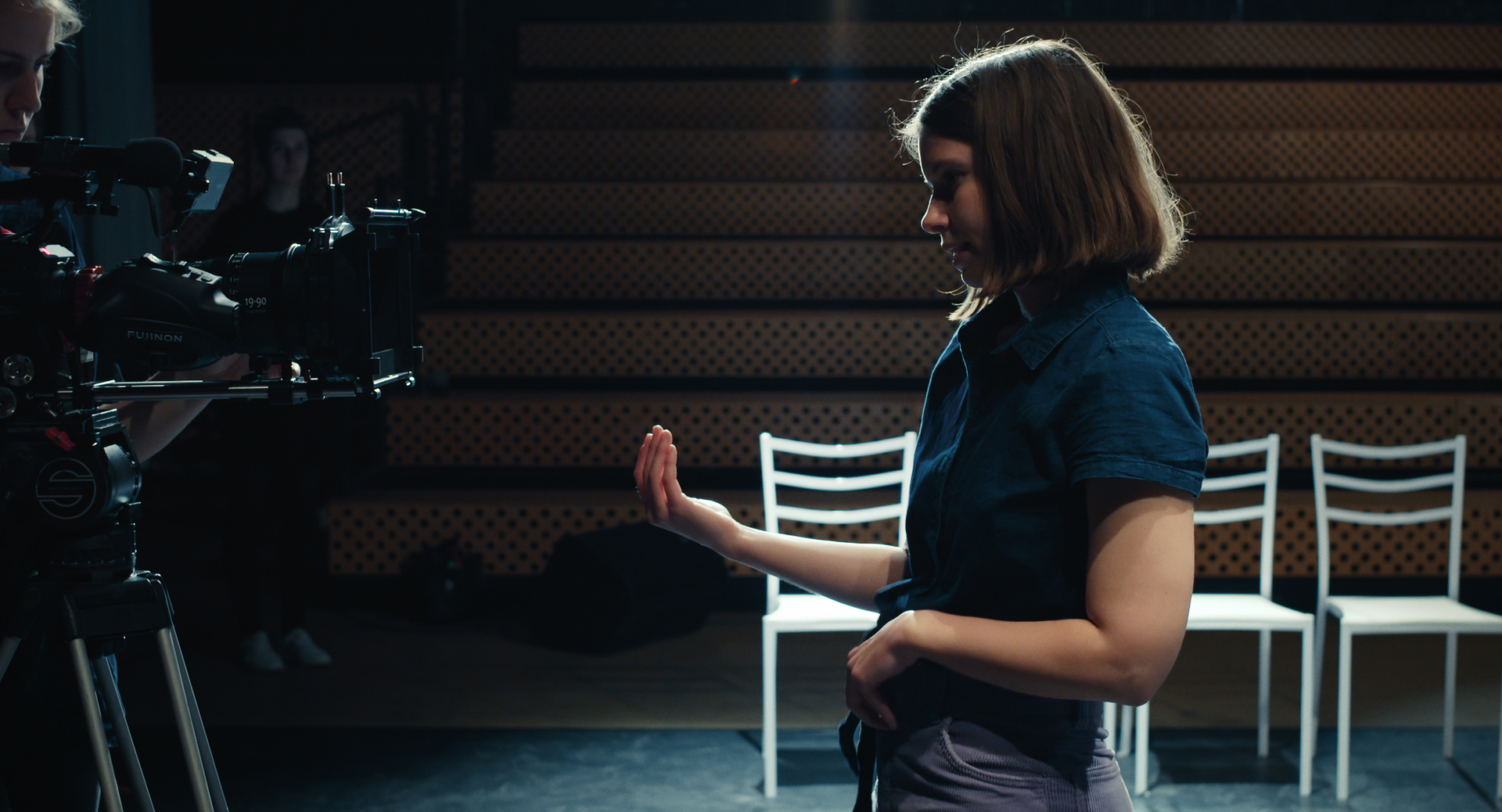
The Case You: five actresses recount a nightmare audition
Published on
Translation by:
Federico RosatiAlison Kuhn’s documentary ‘The Case You’, released in 2020, is currently competing in the ‘Vision Jeune’ category at the Millenium Film Festival in Brussels. Six young women, including the director, describe the verbal and physical abuses to which they were subjected during a casting process. The documentary format invites the actresses to express themselves freely about their trauma and highlights the complexity of the case in question.
Five women stand on a stage, staring directly at the camera lens. The anger in their eyes is palpable. They are all actresses and, in 2015, they all passed the same audition. Today, the upcoming film of a well-known director is at stake. Some of these women were manipulated by him, others were sexually abused. The director who shot the audition subsequently used some of the footage for his feature. Alison Kuhn’s documentary ‘The Case You’ unveils the abuse of power that took place during the casting.
The actresses share their traumatic experiences straight to the camera. “His hands went to my breasts and down between my legs and to my buttocks. I just stood there hoping that someone could help me,” attests the actress Aileen Lakatos. The comedian Lisa Marie Stoiber adds, “after [the audition], I ridiculously thought that I had acted well. It was only later that I realised that I hadn’t acted at all. I cried because I was assaulted.”
If I could get into this university, I would use my new position to make a film about it.
About a hundred actresses auditioned for the film, which has not yet been broadcast. Several women subsequently told their stories on an online platform. Fourteen of them took legal action, including the young women interviewed in the documentary.
Unfortunately, incidents of the kind this film exposes are by no means uncommon. In October 2017, the Harvey Weinstein affair revealed the sexual harassment and rapes that the influential Hollywood producer inflicted on over 80 women. In its wake, the #MeToo movement gave rise to a wave of denunciations of sexual assault and abuse of power on social networks. In 2018, a study conducted by Thomas Schmidt on abuse in German theatres reported that 59% of women have been victims at some point in their career.
Behind closed doors
Before becoming a director, Alison Kuhn began her career as an actress. In 2015, she passed the audition she had been putting off for several years. One day, when she decided to take the entrance exam for the Babelsberg Film University, she came face to face with a candidate who happened to be one of the people that had auditioned her. Confronted with the abuse that had taken place during the casting, the man denied any deviant behaviour. “That was the day I decided to make the documentary. If I could get into this university, I would take advantage of my new position as a director to make a film about it,” she says.
‘The Case You’ is shot entirely on a theatre stage. According to Kuhn, this is a place with which her protagonists identify, and where they feel at ease. On the stage, lit by spotlights, the five young women re-enact the casting process. “I think the room was even bigger, even longer […] There was a standing microphone here,” says one of the actresses, while placing tape around the stage.

Everything is filmed. Nothing is hidden, not even the camerawoman who appears in some shots. “I wanted to work openly. It's a similar approach to cinéma vérité. The cameraman, the soundman, I wanted us all to participate in the film. I didn't want to cut something out because it wasn’t pretty or didn’t seem to belong there,” the director explains.
This is also a way for Kuhn to formally confront the approach the male film-maker adopted during his own casting process: i.e. not making his intentions clear from the offset. In a sense, the documentary allows the protagonists to re-appropriate their audition.
The format, mixing interviews and performances, captures the complexity of the case. “All the actresses were treated differently,” Kuhn explains. “Some say 'nothing happened to me at all', others were bitten on the genitals. I wasn't one of the ones who experienced the most horrible things, but it was a very uncomfortable situation for me.”
Between heartbeats
Dascha Dauenhauer’s minimalist sound design immerses the viewer in an intriguing and at times frightening atmosphere. “I had the idea of making music using only sounds we can make with our bodies. I wanted this level of physicality because it is also a film about regaining control of one's own body,” says Kuhn. The brief musical passages reinforce the protagonists’ emotions, without ever dramatising their testimonies. The documentary won the prize for best music at the 42nd Max Ophüls Preis film festival.
Kuhn never mentions the name of the accused director in her film. The case has been completely anonymised. She took this decision for legal reasons, but also and above all to draw attention to the testimony of the actresses. In her own words: “their voices are more important.”
And these are indeed voices that seem to resonate with many women. Since the release of the documentary, the director and the actresses of ‘The Case You’ have received dozens of messages detailing similar stories. As of 2021, the case is still awaiting trial.
Cover image: ©Lenn Lamster
The film was screened in May 2021 at the Millennium Documentary Film Festival.
Translated from « The Case You » : l'audition cauchemar de cinq actrices



